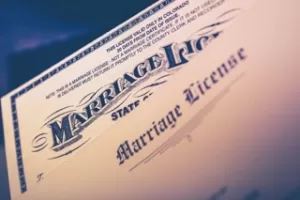Parental separation can be a traumatic experience for all involved. Whether the parents were married, or were simply involved in a relationship, the splitting of two individuals who share children can often cause stress, sadness, and pain. Often in such situations, a custody order is put into place either by a court, or by agreement of the parties. Sometimes, however, the original order that was put in place is no longer a good fit for one or both parties. What can be done in those instances? Is it possible to modify custody after an order has been issued? And if so, what will be the determining factors?
It is possible to modify custody even after a court order has been issued. However, any change in custody needs to be approved by a court, and courts prefer not to disrupt arrangements that have already been put in place. So, courts will only grant custody modifications after considering several factors. The most important factor that a court considers when deciding the matter of a change in custody is the “best interest of the child.” What does the best interest mean? As in so many other areas of the law, the answer is, it depends. Courts will look at a number of factors, and view them in the context of each particular situation, to determine what is in a child’s best interest. The matter of custody is always in issue while children are minors, whether or not formal pleadings are submitted, and modification of custody is an option which never entirely goes away. This is because the court’s primary concern is the best interests and welfare of the child involved, and therefore if there is a change in circumstances which would affect those interests, a court will consider an adjustment to meet the child’s needs.
One way to potentially achieve a change in custody would be for both parents to come to an agreement on the matter. If both parents recognize that a change in circumstances has taken place, and believe that a custody modification would be in the child’s best interest, then they can attempt to develop a new custody arrangement on their own. This new arrangement would still need to be taken before a court and approved, or else the court’s original order will still be in place. If both parents are able to come to an agreement amicably, and have their agreement approved by a court, it is almost always a preferred method of resolution. Of course, in most cases, the parents do not agree on a change in custody, and therefore the parents will usually need to go before a court to present their opposing arguments as to why each should have the custody arrangement that they want.
A court may consider many different things when trying to discern whether there has been a substantial change in circumstances, and in determining what is in the best interest of the child. While there is no set list, and the factors considered will vary from case to case, some things that courts do look at include the following:
- The age and sex of the child.
- The wishes of the child’s parent or parents.
- The wishes of the child, with more weight given to the opinions of children over the age of 14.
- The interaction of the child with parents, siblings, and other close individuals.
- How the child has adjusted to their home, school, and community.
- The mental and physical health of everyone involved.
- Evidence of domestic violence by either parent.
- Evidence that the child has been cared for by someone other than a parent for a least six months to a year, depending on the child’s age. This person is known as a de facto custodian, and under this particular scenario, the court’s analysis could involve the analysis of several other factors, including the wishes of the de facto custodian, the extent of the custodian’s care of the child and involvement in their life, and the circumstances which led to the child being placed with the custodian.
One other situation which may give rise to a modification in custody is where one parent has violated a court order or multiple court orders. Courts take their orders very seriously, and they expect parents to do so as well. Where one parent has egregiously and consistently violated an order – for instance, withholding mandated parenting time from the other parent over the course of weeks or months – a court may take those actions under consideration in determining whether to modify custody.
While each child custody scenario is unique, in general, when analyzing a potential modification of custody, Indiana courts will work to do what is in the best interest of the child. Because courts prefer consistency and stability, and do not like to overturn previous orders, they will usually only grant a custody modification where there has been a significant change in circumstances, and even then, they will only change a custody arrangement where they believe that it will be of significant benefit to the child.
Contact us if you have any additional questions or need assistance with a legal matter.
NOTE
This article primarily references Indiana law. Please check the laws of your local jurisdiction if you live in another state.
The articles in this blog are for informational purposes only. No attorney-client relationship is established through the publication of these articles.







